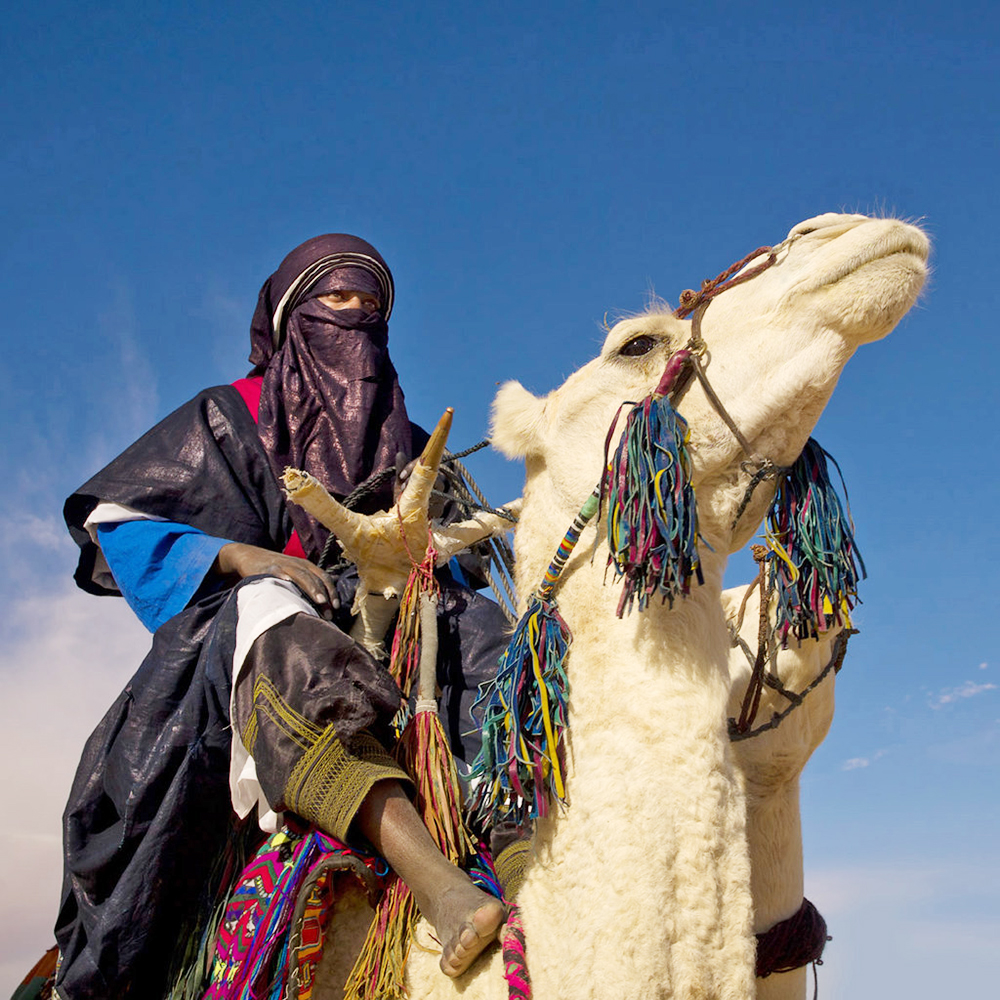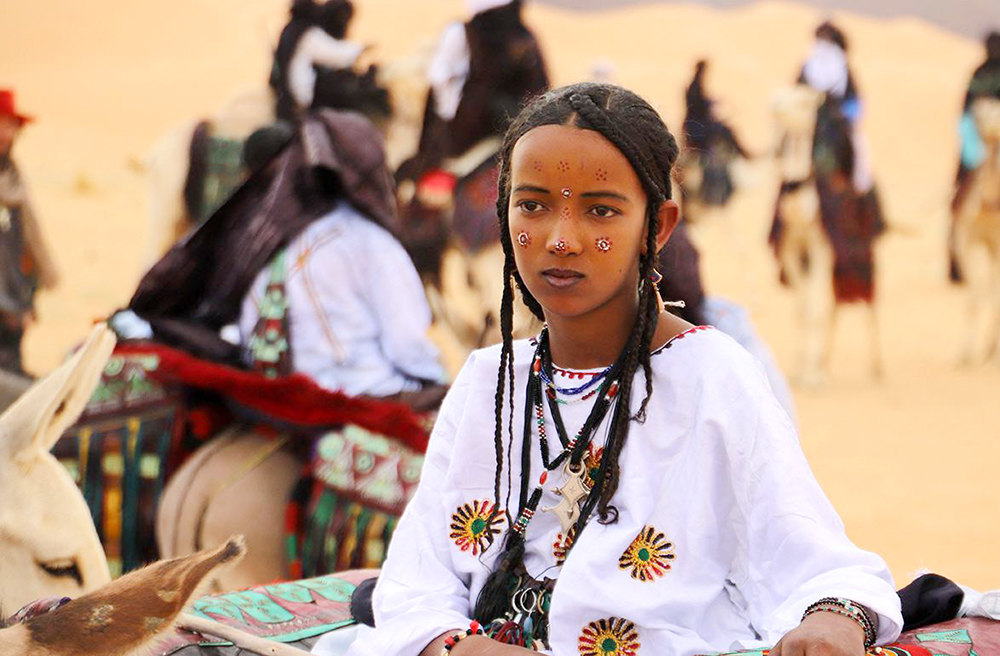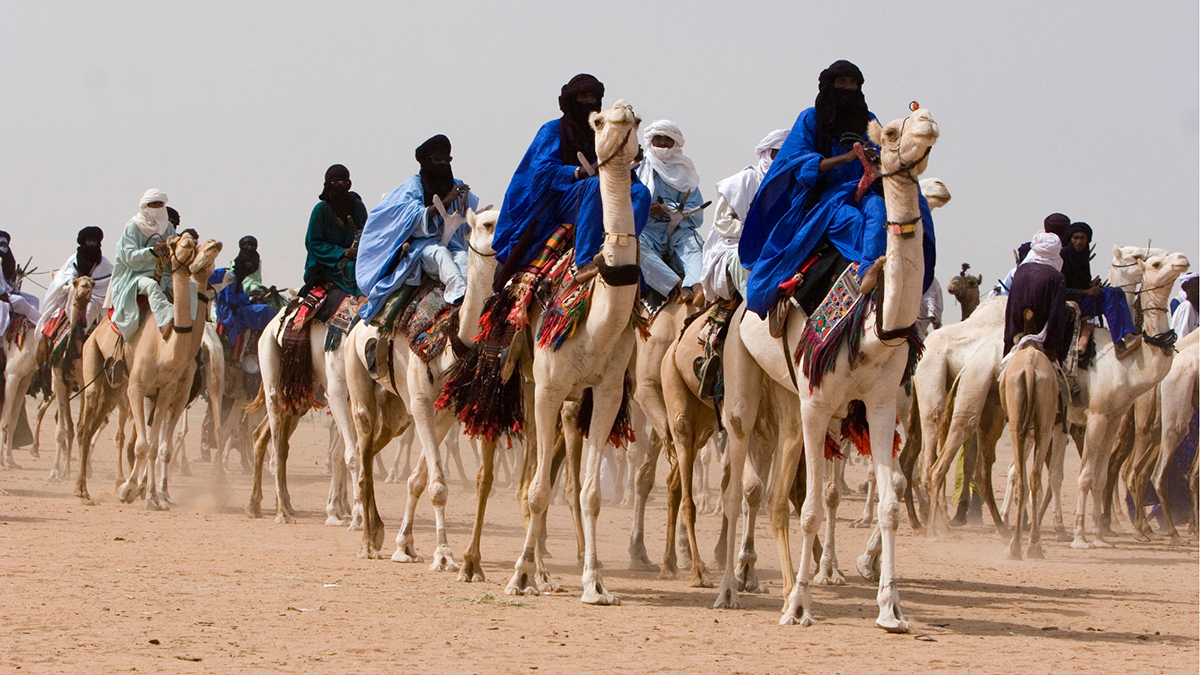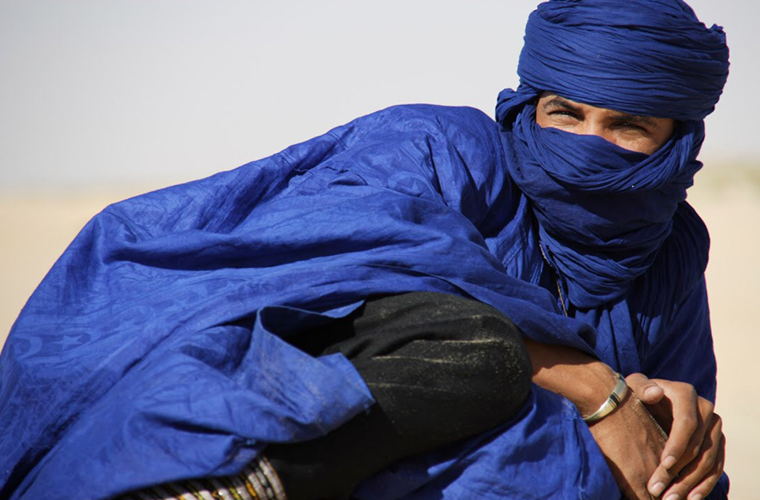The Tuareg are a semi-nomadic Berber ethnic group inhabiting the Sahara Desert, primarily in the countries of Mali, Niger, Algeria, Libya, and Burkina Faso. They are known for their distinct culture, history, and nomadic lifestyle. The Tuareg have a long history that stretches back several centuries. They have traditionally been organized into clan-based social structures, with each clan having its own territory and leadership. The men, known as “Kel Tamasheq” or “noble Tuareg,” have traditionally been responsible for herding livestock and engaging in trade, while the women, known as “Tamasheq,” hold significant social and economic roles within their communities.

One of the notable aspects of Tuareg culture is their distinctive dress, which includes indigo-dyed robes called “tagelmust” or “cheche” that cover their heads and faces to protect them from the desert environment. The tagelmust is often blue, and its color has given rise to the nickname “Blue People of the Sahara.” This attire has become a symbol of Tuareg’s identity and has captured the interest of people around the world.
The Tuareg have also developed a rich musical and storytelling tradition. Their music, characterized by rhythmic chanting, hand clapping, and stringed instruments like the imzad, reflects the nomadic life and their poetic heritage. In recent years, Tuareg musicians, such as Tinariwen, Bombino, and Tamikrest, have gained international recognition, blending traditional Tuareg music with modern influences.

Throughout history, the Tuareg have faced challenges related to political marginalization, conflicts over resources, and struggles for autonomy. They have been involved in various rebellions and uprisings, seeking greater recognition, rights, and control over their ancestral lands.
The modern Tuareg society faces ongoing challenges, including political instability in the region, economic hardships, and the impact of climate change on their traditional way of life. Efforts are being made by the Tuareg and external organizations to address these issues, preserve their cultural heritage, and promote sustainable development in Tuareg communities.

Overall, the Tuareg are a culturally rich and resilient people, known for their distinctive traditions, unique language (Tamasheq), and their historical role as nomadic traders, herders, and warriors in the vast Sahara Desert.

